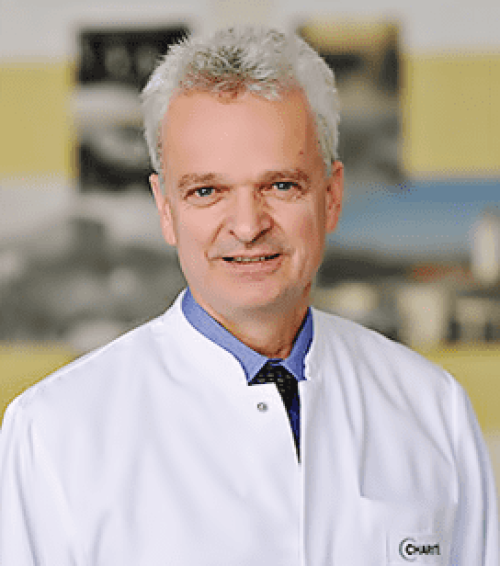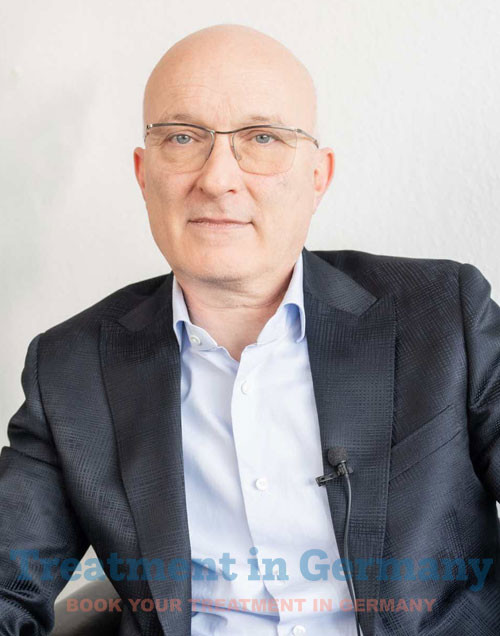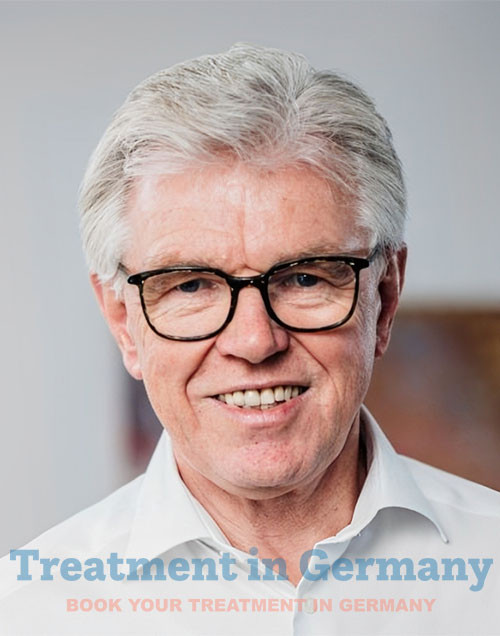Cancer Treatment in Germany
Germany is known for its high-quality healthcare system, and oncology ones take the front seat by being much more advanced in terms of treatment options, professionals, and infrastructure. With a continuously high rate of cancer incidence globally, estimated to be 28.4 million by 2040, Germany continues to lead other healthcare systems when it comes to cancer treatment and research.
Among the prevalent forms of cancer are refers to several diseases of the human body.
Tragic cancer is restricted to a certain area of the body. Furthermore, it is normally safe and does not spread to other parts of the body. On the other hand, benign tumors can become lethal when they develop in organs like the brain. Surgery is frequently required for treatment, and it never grows back.
Lung cancer is the most common type of cancer, and non-small cell lung cancer accounts for approximately 80-90% of all lung cancer cases. This is divided into three main subgroups such as adenocarcinoma, squamous cell carcinoma, and giant cell carcinoma. It occurs when cells in the lung wall become abnormal and become uncontrolled.
Breast cancer involves both men and women are at risk of developing breast cancer, women are more likely to be diagnosed with it. It is caused by abnormal growth of cells in the breast, which causes the tissue to grow together and clump together. Incredibly, one in eight women will be diagnosed with this cancer at some point.
Colorectal bowel cancer roughly one to two million new colorectal cancers are diagnosed each year, making them the most common malignancies worldwide. This deadly disease starts in the lining of the colon or rectum.
Prostate cancer is the second most common malignancy in men worldwide (after lung cancer), with several cases and a large of deaths. It originates from cells throughout the prostate.
Cervical cancer is the most common malignancy in women worldwide. Caused by abnormal proliferation of cervical cells. With an estimated 570K new cases each year, cervical cancer is divided into three types: adenocarcinoma, squamous cell carcinoma, and histologic type not otherwise specified.
Best Oncology Hospitals in Germany
Germany has over 1,300 hospitals offering special facilities for cancer treatment with advanced modern technology. Here are a few of the top cancer hospitals:
IOZK Cologne- Immuno-Oncological Centre
University Hospital Charite, Berlin
University Hospital Rechts der Isar, Munich
University Hospital Frankfurt am Main
Helios Hospital, Berlin-Buch
Beta Clinic, Bonn
Such medical centers are characterized by modern and advanced therapy, which is highly in demand among patients. Moreover, after selecting the best oncology hospital in Germany, the patient must consider the type of cancer, the specialization of the selected institution, and whether it offers high-technology treatment with dendritic cancer vaccines and CAR T-cell therapy.
Top Doctors in Oncology in Germany
Germany is home to some of the world's best oncologists, each specializing in particular kinds of cancer. Such names include:
Prof. Dr. Jurgen Gschwend: Urology and Oncourology, University Hospital Rechts der Isar, Munich
Prof. Dr. med. Thomas Vogl: Interventional Radiology, University Hospital Frankfurt am Main
Dr. med. Anett Tillmann: Academic Hospital Bundeswehr, Berlin, Radiology, Diagnostic and Interventional
They are very trained surgeons and radiologists, applying a very individualized approach to treatments, meaning that more patients are saved.
New Breakthroughs in Cancer Treatment
Germany provides all modern cancer treatments, like:
Chemotherapy:
In Germany, more than half of cancer patients receive chemotherapy, which is the conventional course of treatment for the disease. Some of the modern drugs used by Germany are Abraxane and Jevtana. These are mainly used to enhance breast, lung, and prostate treatments.
Immunotherapy:
Personalized medicine is an emerging cancer treatment. German oncologists are said to rely on a patient's genetic profile to formulate individualized therapies. Such therapy increases efficiency without the hospital inducing side effects.
Immunotherapies, such as checkpoint inhibitors and CAR T cell therapy, are now widely used to treat more difficult malignancies, such as lung and melanoma.
Radiation Therapy:
Germany makes use of state of the art techniques like:
Cyberknife and Gamma Knife: These are non-invasive treatments performed on tumors, mostly in the brain.
Proton Therapy: This is a very precise radiation treatment that targets only the cancer cells and leaves the remaining part of the body untouched.
Surgical Treatments:
The various cancer centers in Germany use the Da Vinci systems for surgical procedures that have high precision combined with short recovery times. Other treatments that they use include HIPEC, or hyperthermic intraperitoneal chemotherapy, in the case of metastatic cancers.
Cancer Diagnosis:
Diagnostic tests we perform may include:
Physical examination: A healthcare provider performs a physical exam to check for abnormalities.
Imaging tests: X-rays, CT scans, MRI scans, and PET scans to visualize internal organs.
Biopsy: Removing a sample of tissue from the affected area for examination under a microscope.
Blood tests: Blood tests to detect abnormal protein levels or tumor markers.
Endoscopy: A flexible tube with a camera to visualize internal organs.
Genetic Tests: These tests can identify specific genetic mutations that might indicate cancer or help guide treatment options.
Price Range for Cancer Treatment in Germany
The treatment cost of cancer also depends on the type of treatment and the hospital. Depending on the type of treatment and the hospital, such common costs include therapies like Lutetium-177 PSMA for prostate cancer, TACE treatment for liver cancer, and PET-CT scans, which vary in range.
Medical tourism for cancer treatment in Germany
There are many patients from foreign countries, as Germany offers high class medical infrastructure and is more affordable compared to most countries, and also short waiting lines. The hospitals in Germany have multilingual staff, and they are patient-focused, which is why many people go there for medical tourism.
Why Treat Cancer in Germany?
It provides the latest medical technologies, such as proton therapy, precision medicine
Very experienced doctors having years of experience within the realm of oncology
Several complicated cases of cancer are treated successfully.
Minimal wait times and patient specific attention.
To put it briefly, it is among the world's top practices in oncology.
The patients here get high tech treatment, professional experience, and the most advanced tools for diagnosis.
Patient centered treatment with research oriented treatment options makes this a destination for cancer patients around the world.
👉 Contact us for further information and receive a complimentary consultation.
Although any type of cancer treatment can be applied as the first line of treatment, surgery is the most frequently employed initial treatment for the vast majority of common cancers. You might receive one of these treatments as your main course of treatment if your cancer is especially sensitive to radiation therapy or chemotherapy. Adjuvant therapy can be applied to cancer treatments. Chemotherapy, radiation therapy, and hormone therapy are examples of common adjuvant treatments.
Support and Material Related Web Site Policy for more on insurance, financing, home care, hospice care, and support groups for people with cancer. For information on dietary considerations related to treatment, clinical trials for supportive care, end-of-life concerns, and information regarding cancer consequences and therapy, see Coping with Cancer External Web Site Policy.
At this stage, the cancer has not migrated to neighboring tissues and is still located where it first appeared. Cancers in zero stage are frequently treatable. A stage typically denotes a little tumor or cancer that hasn't spread far into the surrounding tissues. It is also referred to as early-stage cancer. These stages generally indicate more advanced malignancies or tumors that have pushed more into the surrounding tissues. It's possible that they also reached lymph nodes. They haven't, however, spread to any other organs or bodily parts. At this point, the cancer has spread to other bodily organs or regions. It could be called advanced or metastatic cancer.
Normally symptoms of cancer depend on where the cancer is located and how big it is.
· Fever
· Pain
· Skin changes
· Fatigue
· Sores that don’t heal
· Unexplained weight loss
· Bowel habit or bladder function changes
· Unusual bleeding or discharge
· A nagging cough or hoarseness
· A thickening or lump in a part of the body, such as a breast
· Indigestion or trouble swallowing
· A recent change in a wart or mole
Remember that, there can be other reasons for these signs and symptoms. If you notice any of these symptoms may you concern to Doctor.
Depending on the kind of cancer, different screening tests have different recommended outcomes and age ranges. Thus, it is advisable to discuss with your physician the kind of test and timing of which you may require. Here are screening recommendations for five common malignancies in the interim.
Experience the difference that expertise and compassion can make. Meet our exceptional team of experienced doctors, and trust us to provide you with the best in healthcare.

Cancer Treatments
Director of the Charité Comprehensive Cancer Center Hematology and Oncology
Berlin

Cancer Treatments
Head Physician of the Department of Oncology and Immunotherapy
Berg

Cancer Treatments
Head of Physician for Alternative Medicine
Frankfurt am Main

.webp)
 (1).webp)

.webp)
 (1).webp)


.webp)
 (1).webp)

.webp)
 (1).webp)
